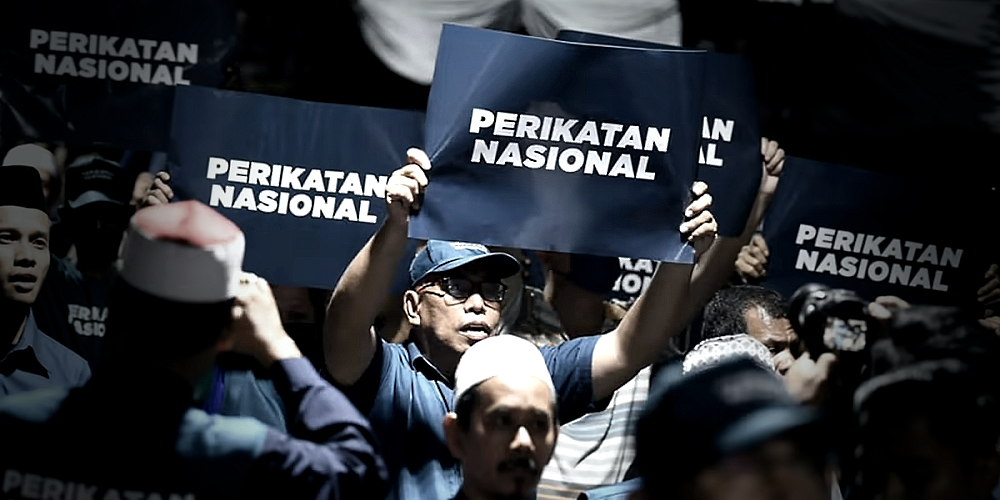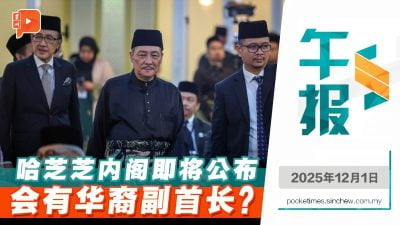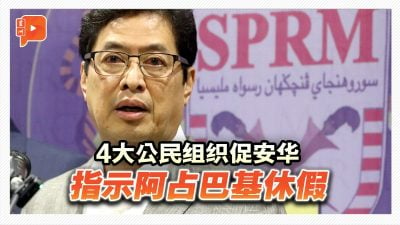PN should seriously study Bersih’s proposal instead of snubbing it squarely.
Bersih has recently urged the Unity Government led by Prime Minister Datuk Seri Anwar Ibrahim to sign an inter-party peace deal with the opposition PN coalition after the dust finally settles on the state elections.
This is meant to avoid the eventuality of any party trying to negate the election outcome and change government half-way.
The deal has unfortunately been turned down by the PN.
PN feels that the pursuit of stability should not stop reforms, including the replacement of leadership not conforming to the best interests of the nation.
PAS deputy president Tuan Ibrahim Tuan Man has hinted that changing government is allowed so long as this is done within the confines of the country’s laws and democratic system, especially when the sitting government is perceived to be unstable.
Bersih has forwarded the proposal in the interest of the nation and her people, but the goodwill has been treated with disdain by the opposition.
Given the fact that PN is uninterested in such a proposal, this deal will most likely be aborted.
Now back to the root of the question: what good will signing the peace deal bring to the country?
The country had been thrown into a state of turmoil since the 2020 Sheraton Move, until a “transformation and political stability MoU” was signed by then prime minister Datuk Seri Ismail Sabri Yaakob and Pakatan Harapan.
Still, the Sheraton Move has cracked open the Pandora’s box, and seizing power half-way has gradually evolved into a political norm in this country nowadays.

After the 2022 general election, PH, BN and East Malaysian parties teamed up to form a new federal government with Anwar Ibrahim as prime minister.
We thought the country would be able to enjoy five full years of relative stability and cool the temperature of intense combative politics, so that the government could concentrate on administrative chores instead of putting itself perpetually in a “combat” mode.
Unfortunately the losing side was reluctant to remain in the opposition for five full years and has threatened every now and then to seize power.
In a democracy, the voters pick their representatives, and a government is created through such a process that will give the government of the day ample time and space to manage this country before the next contest due in five years.
If the government has not performed up to the mark, it can be unseated by the people by way of ballots in their hands.
But the question now is, even if we have already elected a government, political stability is still precarious just because the opposition does not respect the post-election eventuality, and has repeatedly forwarded the “change government” narrative.
The once-in-five-years general election is by right the “grand final” that should rest all disputes once the results are finalised. But our opposition has sought “extra time” to turn the rivalry into a seemingly unending “playoff”.
As a consequence, the Malaysian society is constantly overcast in instability, forcing the government to take valuable time off its administrative duties to fight to defend itself, thus unable to focus on what it is supposed to do: to run the country.
At the same time, the Malaysian political landscape has become heavily fragmentalised, where no single party can rule supreme, and where several parties or coalitions assemble and disassemble to form a momentary ruling pact.
Given PN’s “playoff” modus operandi, Malaysian politics can hardly have a moment of respite, as every sitting government will be constantly cautious about a possible coup.
Malaysian politics have gone a little overboard and the manipulations will have to halt to bring down the temperature. Signing a peace deal between the government and opposition is a solution that can bring tons of benefits.
One the one hand, it will consolidate political stability, eliminate elements of uncertainty and boost the confidence of local companies and foreign investors alike.
On the other hand, the opposition can reach a consensus with the government, be accessible to constituency allocations, and participate in drawing the annual budgets.
Additionally, both sides can work together to bring about the much needed reforms and take the country’s democratic system to a new level of maturity.
Under the framework of democratic politics, rival camps are not entirely confrontational or unable to work together for the well-being of the rakyat.
Perhaps PN should seriously study Bersih’s proposal instead of snubbing it squarely.
ADVERTISEMENT
ADVERTISEMENT








































